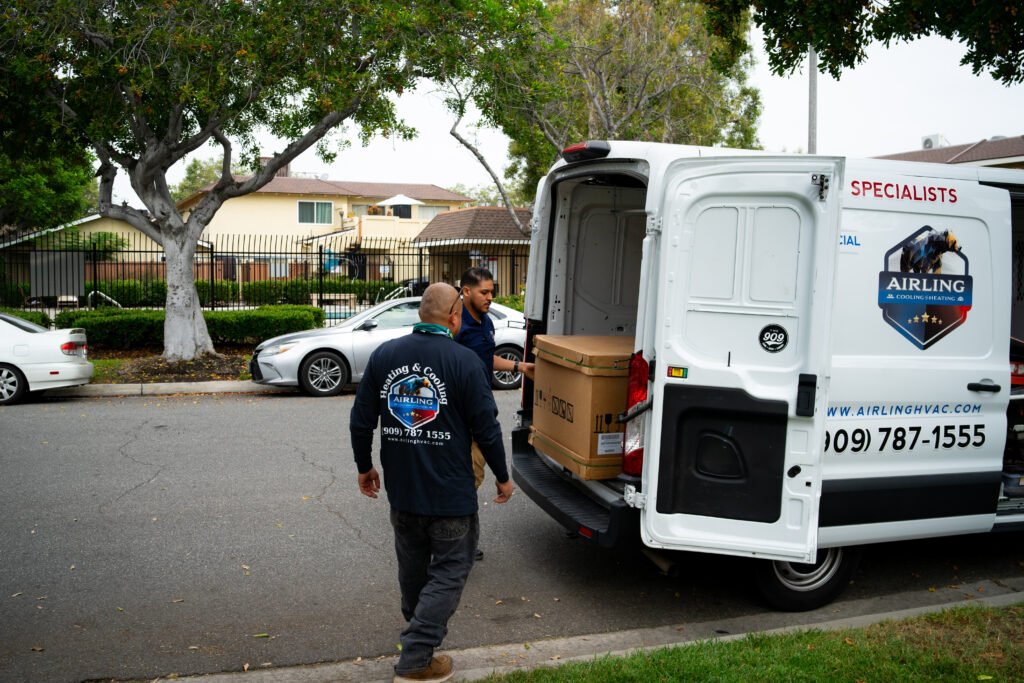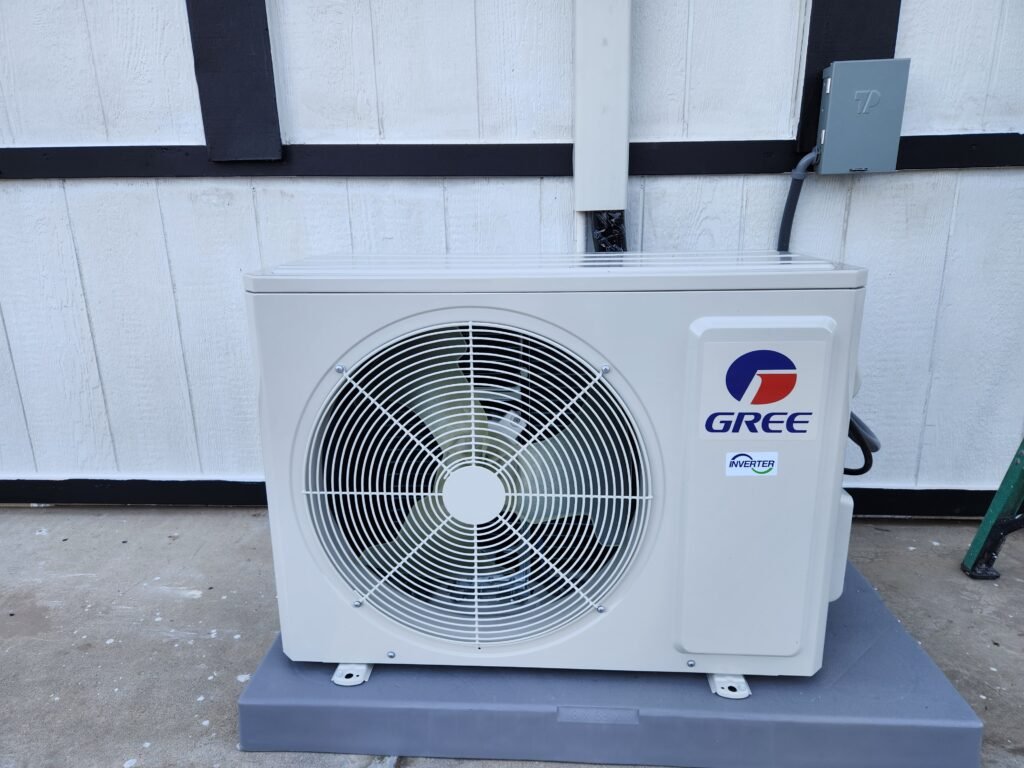
Table of Contents:
- Factors Affecting AC Replacement Costs
- Average Cost of AC Replacement
- Tips for Saving Money on AC Replacement
- Common Pitfalls to Avoid During AC Replacement
- Conclusion
- Preguntas Frecuentes
If you’re considering an AC replacement, you’re likely wondering about the costs involved. It can vary in price depending on several factors. Factors such as the size of your home, the type of AC unit you choose, and any additional installation requirements can all impact the overall cost.
In this article, we’ll break down the average costs, helping you understand what to expect when budgeting for this essential home upgrade. Knowing the typical price ranges for it can empower you to make informed decisions and ensure you’re getting a fair deal.
Whether you’re looking to replace an old unit or upgrade to a more energy-efficient system, understanding the costs involved is crucial in planning your home improvement project.
Factors Affecting AC Replacement Costs
When considering a replacement, various factors can influence the overall cost. Understanding these factors can help you estimate the budget needed for this essential home upgrade.
Here are key elements that can affect AC replacement costs:
Type of AC Unit
The type of AC unit you choose plays a significant role in determining the overall cost. For instance, a central air conditioning system tends to be more expensive to replace compared to a window unit or a ductless mini-split system.
Central AC systems involve more complex installation and typically require professional help, which can contribute to higher costs.
Brand and Model of AC Unit
The brand and model of the unit you select can also impact the replacement costs. Well-known brands with higher efficiency ratings often come with a premium price tag. Additionally, certain models may require specialized installation procedures or parts, adding to the total replacement expenses.
It’s essential to weigh the initial cost against long-term energy savings to make an informed decision.
Installation Considerations
Installation considerations such as your home’s layout, existing ductwork, and installation complexity can affect the overall costs. If modifications are needed to accommodate a new unit, such as upgrading ductwork or electrical systems, these additional requirements can increase the total replacement cost. Opting for professional installation services may also add to the overall expenses but can ensure a proper and efficient setup.
Average Cost of AC Replacement
When considering the average cost of AC replacement, it’s essential to look at the national average and key factors influencing these costs.
National Average
The national average cost for AC replacement in the United States ranges from $3,800 to $7,500. However, this cost can vary based on factors such as the size of your home, the type of AC unit you choose, and the complexity of the installation.
Factors that Influence Costs
Several factors can influence the cost of AC replacement:
- Home Size: The larger your home, the more cooling capacity you’ll need from your unit, which can affect the overall cost of replacement.
- Type of AC Unit: Different types of AC units, such as central air conditioning, ductless mini-split systems, or heat pumps, can vary in cost based on their efficiency and features.
- Installation Requirements: The complexity of the installation, including factors like home layout, existing ductwork, and any additional modifications needed, can impact the total cost of replacement.
By understanding these key factors, you can better estimate the average cost and make informed decisions for your home improvement project.
Tips for Saving Money on AC Replacement
When looking to save on costs, there are several strategies you can employ to reduce the financial burden of this home improvement project.
Here are some practical tips to help you save money on your AC replacement:
- Regular Maintenance: Keeping your current AC unit well-maintained can extend its lifespan and delay the need for a replacement. Regularly changing filters, cleaning the unit, and scheduling professional maintenance can help avoid premature AC failure.
- Energy-Efficient Units: Opt for energy-efficient AC units when replacing your system. Though they may have a higher upfront cost, they can lead to significant savings on your energy bills over time, making them a cost-effective choice in the long run.
- Comparison Shopping: Before committing to an AC replacement, get quotes from multiple HVAC contractors. Comparing prices and services can help you find the best deal and potentially negotiate a lower price for the replacement.
- Seasonal Discounts: Consider scheduling your AC replacement during the off-peak seasons when HVAC companies may offer discounts or promotions. Planning ahead and timing your replacement strategically can help you capitalize on seasonal deals and save money.
- Energy Rebates: Check for available energy rebates or incentives offered by utility companies or governmental agencies for installing energy-efficient AC units. Taking advantage of these rebates can significantly reduce the overall cost of your AC replacement.
- DIY Prep Work: To save on labor costs, you can handle some preparatory work yourself, such as clearing the installation area, removing obstacles, or ensuring proper electrical connections are in place. However, always consult with professionals for tasks that require expertise to avoid costly mistakes.
By implementing these money-saving tips, you can make the process of AC replacement more affordable without compromising on the quality of your new cooling system.
Common Pitfalls to Avoid During AC Replacement
When undertaking an AC replacement, it’s crucial to steer clear of common pitfalls to ensure a smooth and successful process.
Here are some key mistakes to avoid:
- Skipping Proper Sizing: One common mistake is not sizing your new AC unit correctly. A unit that is too small won’t cool your home efficiently, while one that is too large can lead to excessive energy consumption and uneven cooling.
- Ignoring Ductwork Issues: Neglecting the condition of your ductwork can result in reduced efficiency and performance of your new AC system. Leaks, blockages, or poor insulation in the ducts can hamper airflow and overall cooling effectiveness.
- Neglecting Professional Installation: Opting for DIY installation or hiring inexperienced technicians can lead to improper installation. This can cause performance issues, inefficiencies, and even premature system failures, costing you more in the long run.
- Not Considering Energy Efficiency: Overlooking the energy efficiency rating of the new AC unit can result in higher energy bills over time. Investing in a more energy-efficient model may have a slightly higher upfront cost but can lead to significant savings in the long term.
- Focusing Solely on Price: While cost is an essential factor, basing your decision solely on price can be a pitfall. Consider the overall value, warranty coverage, energy efficiency, and installation quality in addition to the initial cost.
By being mindful of these common pitfalls and taking proactive measures to avoid them, you can ensure a successful AC replacement that maximizes efficiency, performance, and cost-effectiveness.

Conclusion
You’ve now gained valuable insights into the costs of AC replacement, including key factors that impact pricing and money-saving strategies. Avoiding common pitfalls, such as improper sizing and neglecting ductwork issues, is crucial for a successful replacement.
Remember, professional installation, energy efficiency considerations, and overall quality should take precedence over solely focusing on the price. By making informed decisions and prioritizing efficiency, you can ensure a smooth replacement process that enhances your home’s comfort and saves you money in the long run.
Preguntas Frecuentes
What factors affect the cost of AC replacement?
Several factors influence the cost of AC replacement, including the size of your home, the type of AC unit needed, any additional installation requirements, and labor costs.
What is the national average cost for AC replacement in the United States?
The national average cost for AC replacement in the United States typically ranges from $3,000 to $7,000, depending on various factors.
How can I save money on AC replacement?
You can save money by obtaining multiple quotes, considering energy-efficient models, performing regular maintenance, and exploring financing options.
What pitfalls should I avoid during AC replacement?
To ensure a successful AC replacement, avoid pitfalls like improper sizing, neglecting ductwork issues, not hiring a professional for installation, overlooking energy efficiency, and solely focusing on the upfront price.

